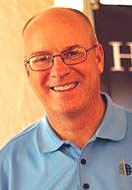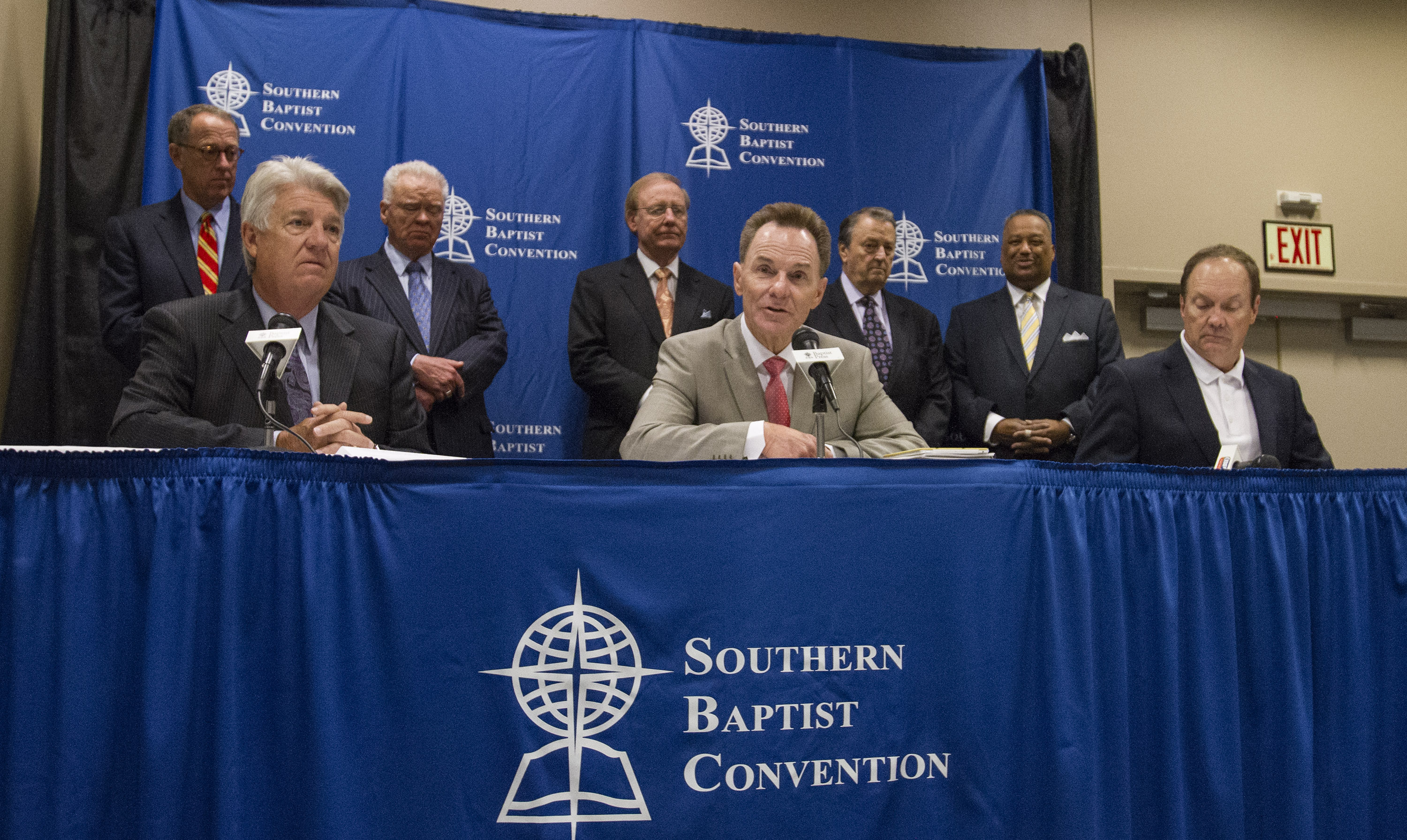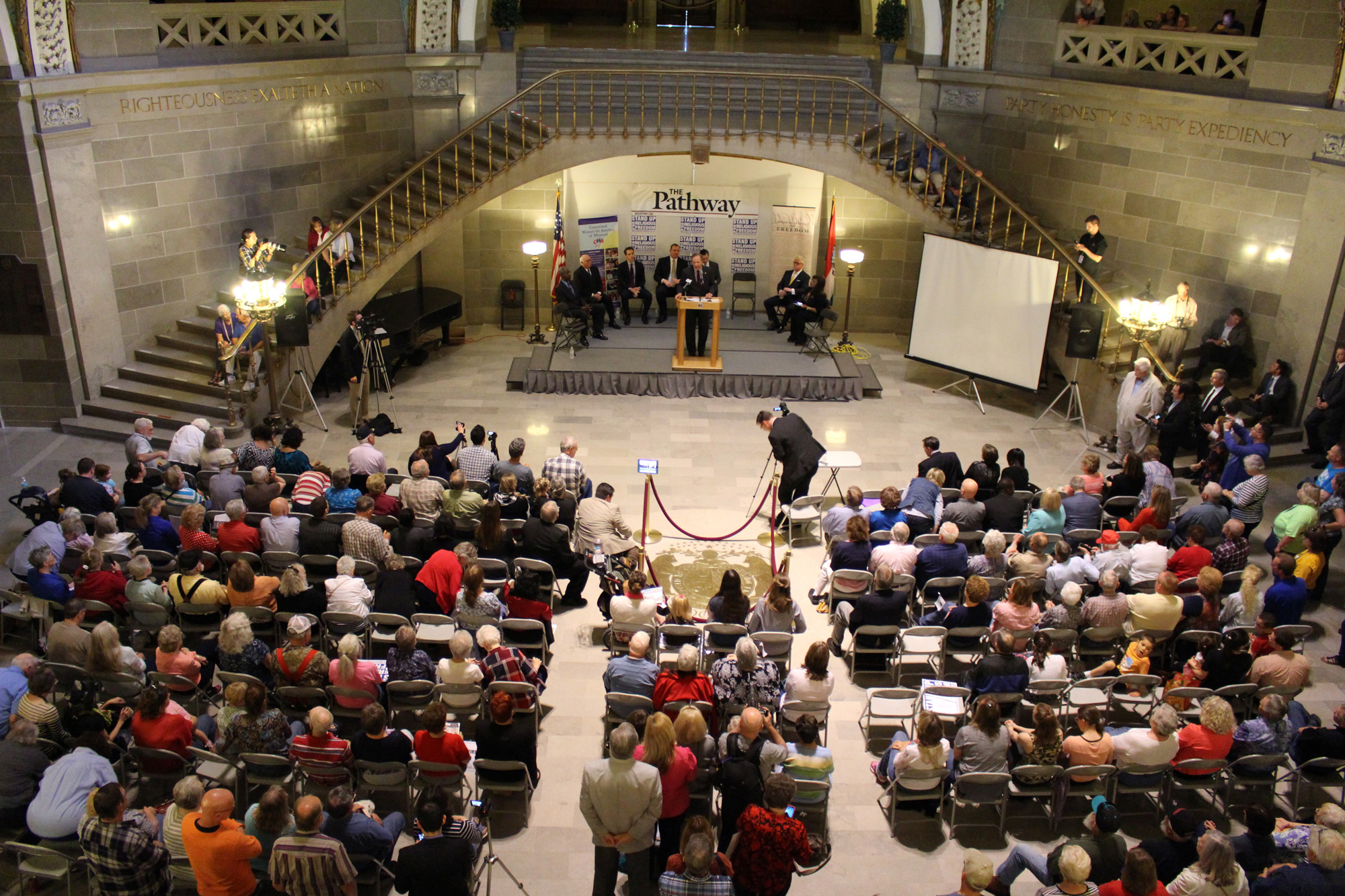

(C) iStockphoto
Southern Baptist church leaders should pay attention to a situation that occurred earlier this year in Colorado, says Southern Baptist ethicist C. Ben Mitchell.
A Denver-area congregation received national media attention for moving a funeral with people already seated in the church building to a funeral home across the street because a video was playing that showed the deceased kissing her lesbian partner.
The family of the deceased woman paid to have the funeral in the church and had even provided the church a copy of the video in advance but church ministers failed to preview the video and said later that it had been lost, according to news reports.
Family members were asked to edit the video but, when they refused to do so, the church would not allow the funeral to continue.
With the caveat that there are two sides to every story, Mitchell said it was his opinion the church should have allowed the funeral to proceed.
Once the funeral was over, the church ministers could have said, “We made a mistake,” and then taken steps to prevent it from happening in the future.
“My guess is that if they had done that it would not have become a national news story.”
What happened near Denver should serve as a wake-up call for Southern Baptist churches to think through issues as they relate to homosexuality and other matters that are inconsistent with biblical teaching, said Mitchell, provost and vice president for academic affairs at Union University in Jackson, Tennessee, and a former Baptist pastor at Middle Valley Baptist Church in Hixson, Tennessee. He also served on staff of the former SBC Christian Life Commission (now Ethics & Religious Liberty Commission) and taught ethics at Southern Baptist Theological Seminary in Louisville, Kentucky, and Trinity Evangelical Divinity School in Deerfield, Illinois.
Mitchell observed that some churches have established policies regarding weddings of homosexuals but he does not know of any that have addressed funerals.
Mitchell, a member of First Baptist Church, in Jackson, Tennessee, said his church has a clearly established policy that specifically prohibits same-sex marriage ceremonies. They have not addressed the issue of funerals, but “I anticipate we will begin to look into it.”
Mitchell suggested that churches consider establishing written and published guidelines for dealing with the issue, especially if they rent out their facilities to outside groups for weddings, funerals, or other events.
And, even if churches do not rent out their space, they need to be prepared to deal with the issue of conducting a wedding or funeral for a family member of someone connected with the church, he added.
Mitchell observed that policies adopted by a church “should not focus just on homosexual behavior but should also include any behavior inconsistent with the Bible.
“Everything related to the church’s ministry needs to be on the table,” Mitchell said.
And, he continued, the policies and guidelines should be developed before the church is faced with an issue.
“Establishing policies before personalities are involved is important,” he stressed.
He added that policies should deal with both church members and non-members and the policies must be consistent. “Inconsistencies will come back to haunt us because the position ought to be convictional, not preferential.”
The policies also should be clear that “this is who we are, and in light of that, this is what our position is and it applies equally to everyone.”
If the policy is applied differently it opens us up to the charge of acting arbitrarily “based on our personal views rather than biblical convictions.”

(C) iStockphoto
Mitchell said that weddings and funerals are distinctly different.
Allowing the ceremony of a same-sex marriage gives tacit approval of a lifestyle that is incompatible with what is taught in Scripture, Mitchell said.
Conducting a funeral is not giving tacit approval of a lifestyle, but it does provide an opportunity to minister to people who do not know the Gospel and may not know Christ, he said.
Mitchell said that though he has never conducted the funeral of a homosexual he would not hesitate to do so as long as the family clearly understands “I would not affirm the person’s lifestyle.”
A tension exists, Mitchell acknowledged.
“We don’t want to close communication and relationships with anyone who needs the Gospel, but at the same time, being a member of a church carries with it important responsibilities and one of those is protecting the Gospel.”
Ultimately, Mitchell noted, the issue is not whether a church would allow the funeral or marriage of a homosexual in its facility. “The issue is to decide what you would do and apply it to everyone.”
Mitchell said that written policies and guidelines approved by the church body will not only prevent embarrassment for the church but would avoid charges of discrimination from the government.
“The policy should flow from our understanding of biblical sexuality and biblical marriage. The more explicit we can make that connection in writing, the safer the ground we are on,” he said.
“A written document stands as a witness that we believe our policy is entailed in our doctrine and not just a cultural preference.”


















